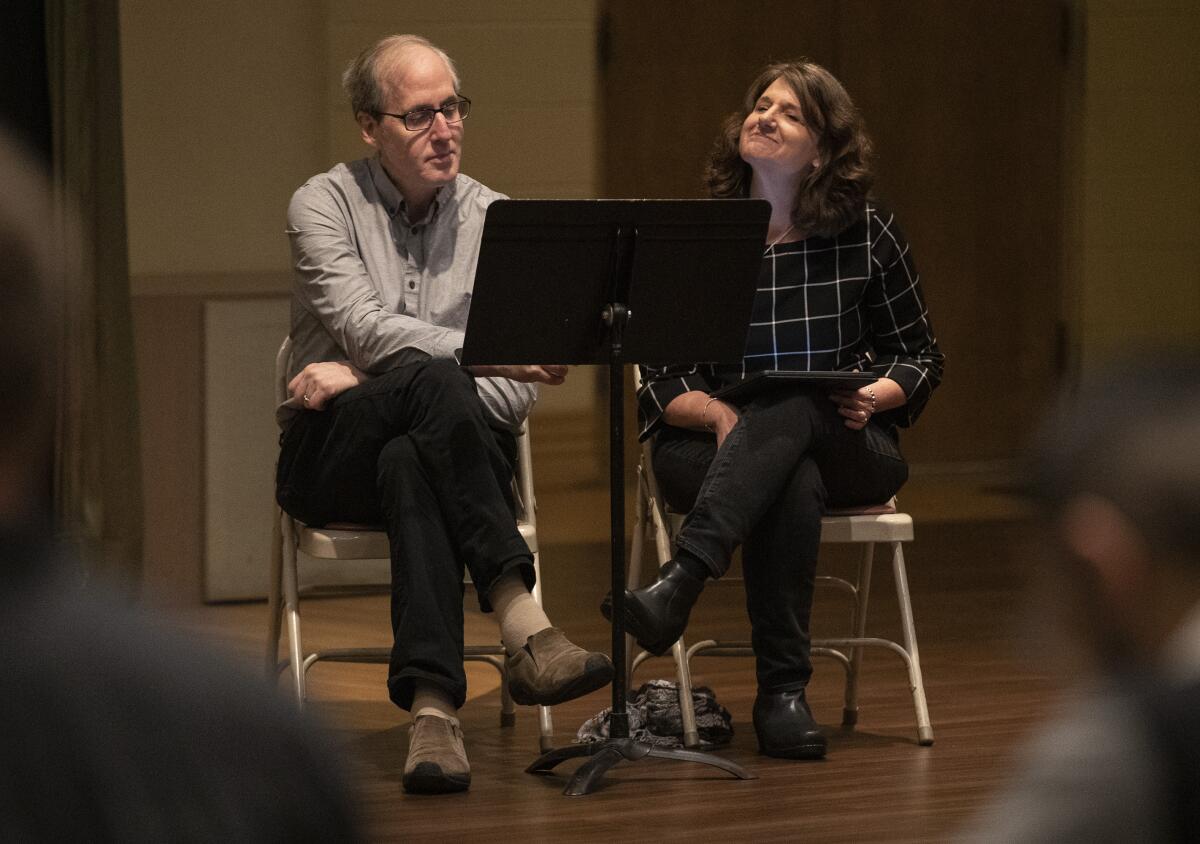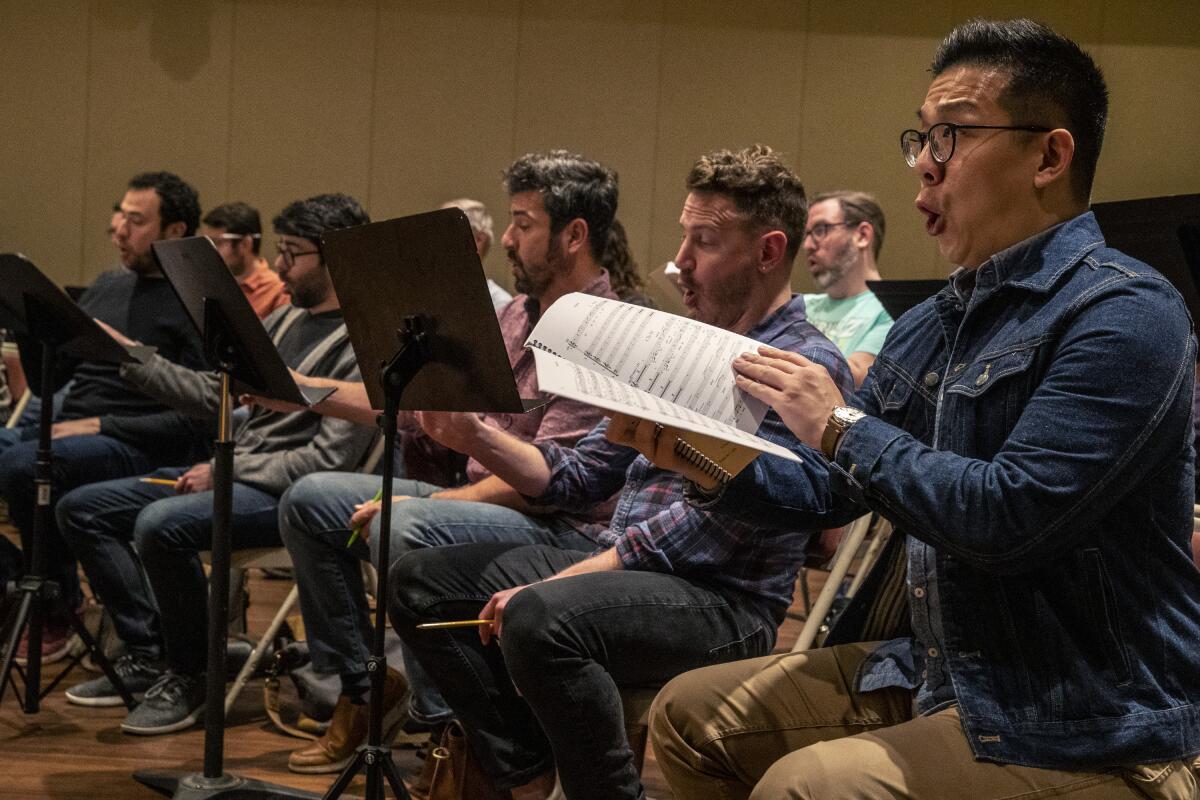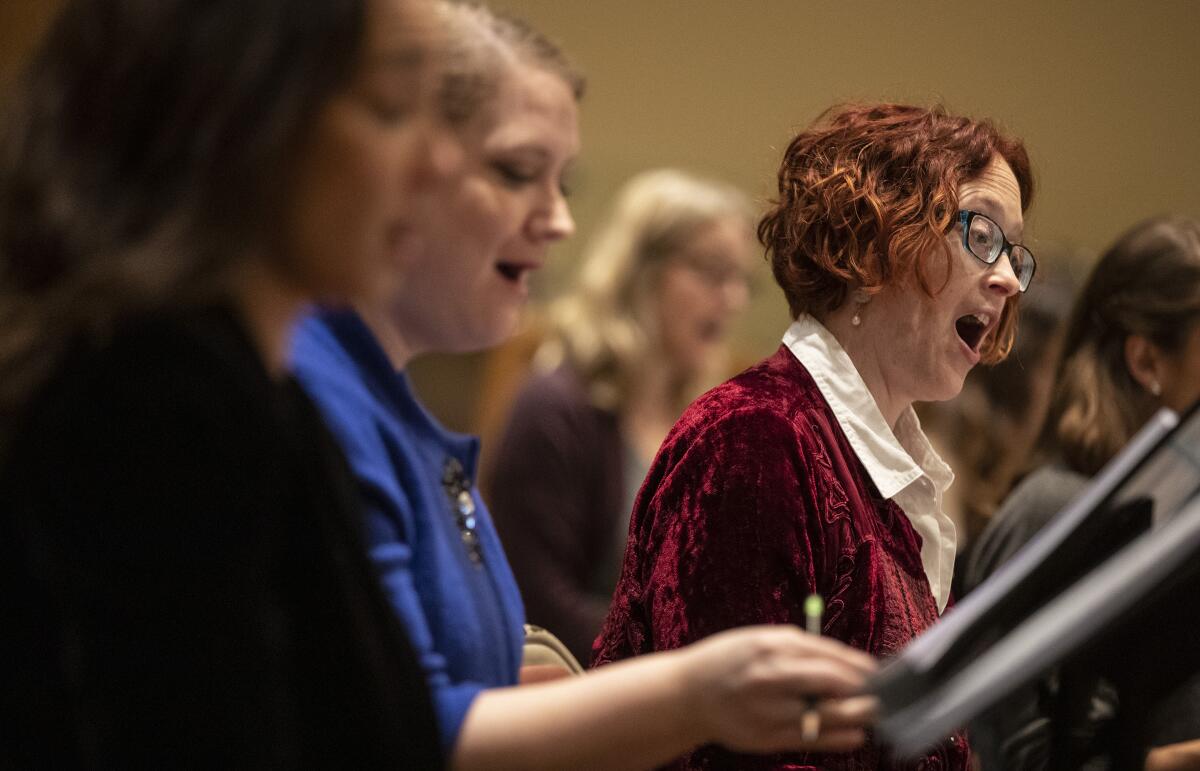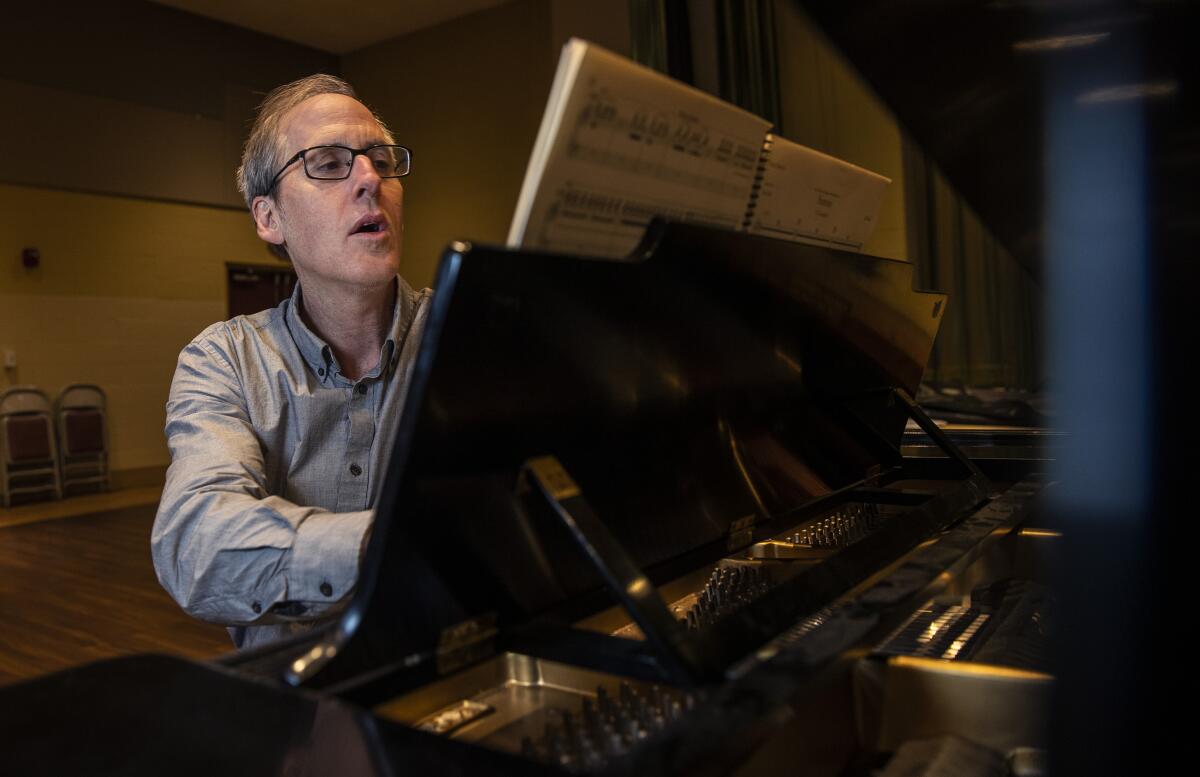1929 Oscar winner ‘Sunrise’ scores a new voice. How you can hear the music, live

- Share via
The 1927 silent film “Sunrise: A Song of Two Humans” opens with this title card: “This song of the Man and his Wife is of no place and every place; you might hear it anywhere at any time.”
Directed by F.W. Murnau, the movie is a dreamlike story about marital fidelity and temptation that won three Oscars at the first Academy Awards ceremony in 1929, including the first — and only — award for “best unique and artistic picture.” Two weeks before the 92nd Academy Awards, the Los Angeles Master Chorale will screen the film, this time with a new score cowritten by Jeff Beal, the Emmy-winning composer of “House of Cards” and “Blackfish.”
“I knew about ‘Sunrise’ in the back of my mind,” said Beal, who added that when he watched the film, “all the bells went off.”
Beal had written a choral piece for the L.A. Master Chorale and the Eric Whitacre Singers in 2017. He proposed following that up with a voice-led score for a silent film, and after surveying a bunch of German expressionist movies, “Sunrise” emerged as the best prospect.

“It was visually just gorgeous,” he said. “I loved the fact that it was about a relationship. Not a lot of talking — I mean, there are a few of those titles which come in — so it was deliberately an abstraction. No characters have any name. So I also think it connected to this sense of myth and archetypes, as opposed to finding itself too rooted in a time period.”
The human voice is rarely spotlighted in movie music, largely because it would clash with dialogue and distract the audience. It’s “like catnip for the ears,” Beal said, “so you know when you use it that you’re playing with fire.”
But a silent film, trafficking in imagery and metaphor, is the perfect canvas.
“Nobody’s talking,” Beal said. “It’s perfect. I wish more movies were like that. I think there’s too much talking in everything these days. We’re just explaining ourselves to death. And it’s so funny: We’re the most visual culture probably ever, because we’re all looking at devices. But the idea of stepping back from language and going more towards the mystery of the story — I think that’s what makes cinema so great.”

For a woman’s perspective for the libretto, he turned to his usual collaborator: his wife of 35 years, Joan Beal, an accomplished soprano who has sung with the San Francisco Opera Company and the Master Chorale, where she met its artistic director, Grant Gershon.
Joan Beal sank her teeth into the Jungian subtext of “Sunrise,” the concept of the shadow self and archetypal dualities (male/female, lustful/virginal, country/city). She curated poetry and text from “The Song of Solomon,” Hesiod’s “Theogony,” Hilda Doolittle, Theodor Storm and her own work.
She said it’s not important that the audience understand any of the words. No supertitles will be on display. Instead, she wanted the chorus to have something to communicate.
“I knew if the singers had some sort of dramatic context, their voices will take on different colors,” Joan Beal said. “Like the boat scene. Jeff wrote just this creepy, dense sort of feeling, and I found this dark German poetry. In the photographer’s studio, where there’s a lightness, I use some Italian. When they’re in the city, and it’s new and different, it’s French.
“It’s the whole idea that the language will give the singers the depth.”
The 40-person choral score also will feature a chamber orchestra and three soloists: soprano Holly Sedillos, soprano Suzanne Waters and tenor Dermot Kiernan.
The #MeToo movement has given the film a new prism through which to be seen.
“When we watched it, I was just like: ‘Hon, this is kind of a monster movie,’” Joan Beal said. “She’s a vulnerable woman, because she can’t make her own living, she’s raising a child, she’s completely dependent on this man for everything, for her livelihood, for her life. He’s her protector. So to have that person turn against her and become something that could kill her — yeah, it’s terror.”

Experiencing a silent film with a new score helps to dust off some of the cobwebs, Jeff Beal said.
“It’s easy for people to dismiss a lot of really great silent films like this. ‘Oh, it’s melodrama.’ Well, you look at it, it’s not really melodrama. Yes, there are broad strokes in this film. But I think one of the things that a modern score helps do for these films is really let you notice what’s there in the performances, and really feel it on terms that you don’t distance as melodrama, that you get caught up in. You see the universal human emotions that are coming through.”
Jeff Beal’s grandmother, Irene Beal, was a pianist who accompanied silent films in Boise, Idaho. She also was the one who turned him on to jazz, which led him to study trumpet and composition in the mid-’80s at the Eastman School of Music, where he met his wife.
Joan Beal said the Master Chorale project made her freshly appreciate the qualities in her husband that she fell in love with from the start — “his gentle nature, his kindness, his compassion.”
For Jeff Beal, teaming up with Joan was a nice reminder of the artist he fell for at Eastman.
“This project comes at the end of a 20-year season of raising a family together,” he said, “when you’re like, ‘OK, who’s going to make the lunch today?’ and ‘Who’s going to get him to do the math homework?’ And that’s a beautiful season of life. But I just feel like I was able to respect and see that part of her again, and enjoy that part.”
‘Sunrise: A Song of Two Humans’
When: 7 p.m. Sunday
Where: Walt Disney Concert Hall, 111 S. Grand Ave., L.A.
Tickets: $29-$119 (subject to change)
Info: (213) 972-7282, lamasterchorale.org
Support our coverage of L.A.’s music scene. Become a digital subscriber.
More to Read
The biggest entertainment stories
Get our big stories about Hollywood, film, television, music, arts, culture and more right in your inbox as soon as they publish.
You may occasionally receive promotional content from the Los Angeles Times.










